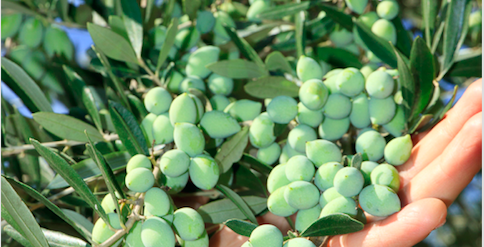
03 Aug Olive Oil Myths: Refrigerating
A common question about Greek olive oil is where to store it. Particularly, many people want to know if olive oil should be refrigerated. Not surprisingly, there is much debate on this topic. Ultimately, a good rule of thumb to keep in mind is that light, air, and heat are the worst enemies of olive oils. They can create free radicals, which ultimately create excessive oxidation and a foul rancid characteristic that leaves a bad taste in your mouth. If you’re ready to learn more about how to properly store your olive oils, the Theros family is here to help you out.
The Truth About Refrigeration
Whether to refrigerate Greek olive oil or not is a much-debated question. However, we have done some research to provide you with an answer. Working alongside NC State, we have found that refrigerating olive oils will not actually ruin their flavor, as some people believe. The flavor may be reduced slightly, but the product certainly will not be destroyed completely. Molecular compounds remain after thawing that will degrade tasting notes originally in the product. Additionally, putting oil in the refrigerator can change its color and physical properties, even if it doesn’t degrade the quality or flavor of the oil. Oil naturally
solidifies and turns cloudy when exposed to colder temperatures, which makes it less aesthetically appealing and more difficult to use. Some experts recommend keeping a small amount of Greek oil at room temperature so that it’s ready for instant use, but you can then refrigerate the rest. Refrigeration is an ideal long-term storage solution for most olive oils, and it can easily be kept in a clear container such as a wide-mouth glass jar.
Keeping it Cool
Cool temperatures and a darker atmosphere are key ingredients to success when it comes to storing olive oils. The ideal temperature for oil storage is about 57°F, although oils can safely be stored at temperatures up to 70°F. If you have a wine cellar, that’s a perfect storage spot for olive oils, too. However, if you don’t, the kitchen will work fine if you can store the product in a place away from light and within the recommended temperature range. Keep in mind that if your kitchen tends to get warmer than the ideal temperature range for storing oils, you are better off storing the oils in the refrigerator to keep them from turning
bad.
Suitable Storage Containers
When you keep olive oils in the refrigerator, it’s fine to use a clear bottle, since you don’t have to worry about keeping out light and moisture. If you’re storing the oil on the counter or in the cupboard, on the other hand, a darker-colored container is a better option. If oil isn’t in the fridge, a darker-colored jar can keep it cool and protected against light exposure and humidity. If you do store oil outside of the fridge in a container, be sure to use a tight lid or cap to keep unwanted air out of the container.
Storage Considerations
No matter where you choose to store your Greek olive oil, it’s important to remember that oil has a lifespan. Unlike a fine wine, olive oil does not get better with age. In fact, olive oils usually have a fairly short lifespan that is determined in large part by their categorization. Extra-virgin oils, for instance, store better because of their low acidity content. Olive oils with higher acidity levels don’t last quite as long. Those oils may need to be used within a few months, while a quality EVOO will last 1-2 years. You already know that you enjoy a good Theros EVOO, but now you know how to store our olive oils, too. We encourage you to follow the proper storage guidelines for best results and ultimate satisfaction.


Sorry, the comment form is closed at this time.